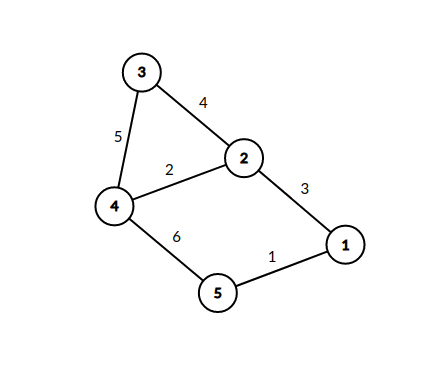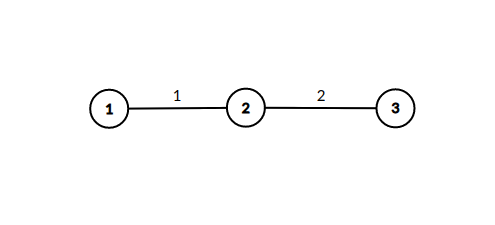Preparando MOJI
There are $$$n$$$ cities and $$$m$$$ bidirectional roads in the country. The roads in the country form an undirected weighted graph. The graph is not guaranteed to be connected. Each road has it's own parameter $$$w$$$. You can travel through the roads, but the government made a new law: you can only go through two roads at a time (go from city $$$a$$$ to city $$$b$$$ and then from city $$$b$$$ to city $$$c$$$) and you will have to pay $$$(w_{ab} + w_{bc})^2$$$ money to go through those roads. Find out whether it is possible to travel from city $$$1$$$ to every other city $$$t$$$ and what's the minimum amount of money you need to get from $$$1$$$ to $$$t$$$.
First line contains two integers $$$n$$$, $$$m$$$ ($$$2 \leq n \leq 10^5$$$, $$$1 \leq m \leq min(\frac{n \cdot (n - 1)}{2}, 2 \cdot 10^5)$$$).
Next $$$m$$$ lines each contain three integers $$$v_i$$$, $$$u_i$$$, $$$w_i$$$ ($$$1 \leq v_i, u_i \leq n$$$, $$$1 \leq w_i \leq 50$$$, $$$u_i \neq v_i$$$). It's guaranteed that there are no multiple edges, i.e. for any edge $$$(u_i, v_i)$$$ there are no other edges $$$(u_i, v_i)$$$ or $$$(v_i, u_i)$$$.
For every city $$$t$$$ print one integer. If there is no correct path between $$$1$$$ and $$$t$$$ output $$$-1$$$. Otherwise print out the minimum amount of money needed to travel from $$$1$$$ to $$$t$$$.
5 6 1 2 3 2 3 4 3 4 5 4 5 6 1 5 1 2 4 2
0 98 49 25 114
3 2 1 2 1 2 3 2
0 -1 9
The graph in the first example looks like this.

In the second example the path from $$$1$$$ to $$$3$$$ goes through $$$2$$$, so the resulting payment is $$$(1 + 2)^2 = 9$$$.
